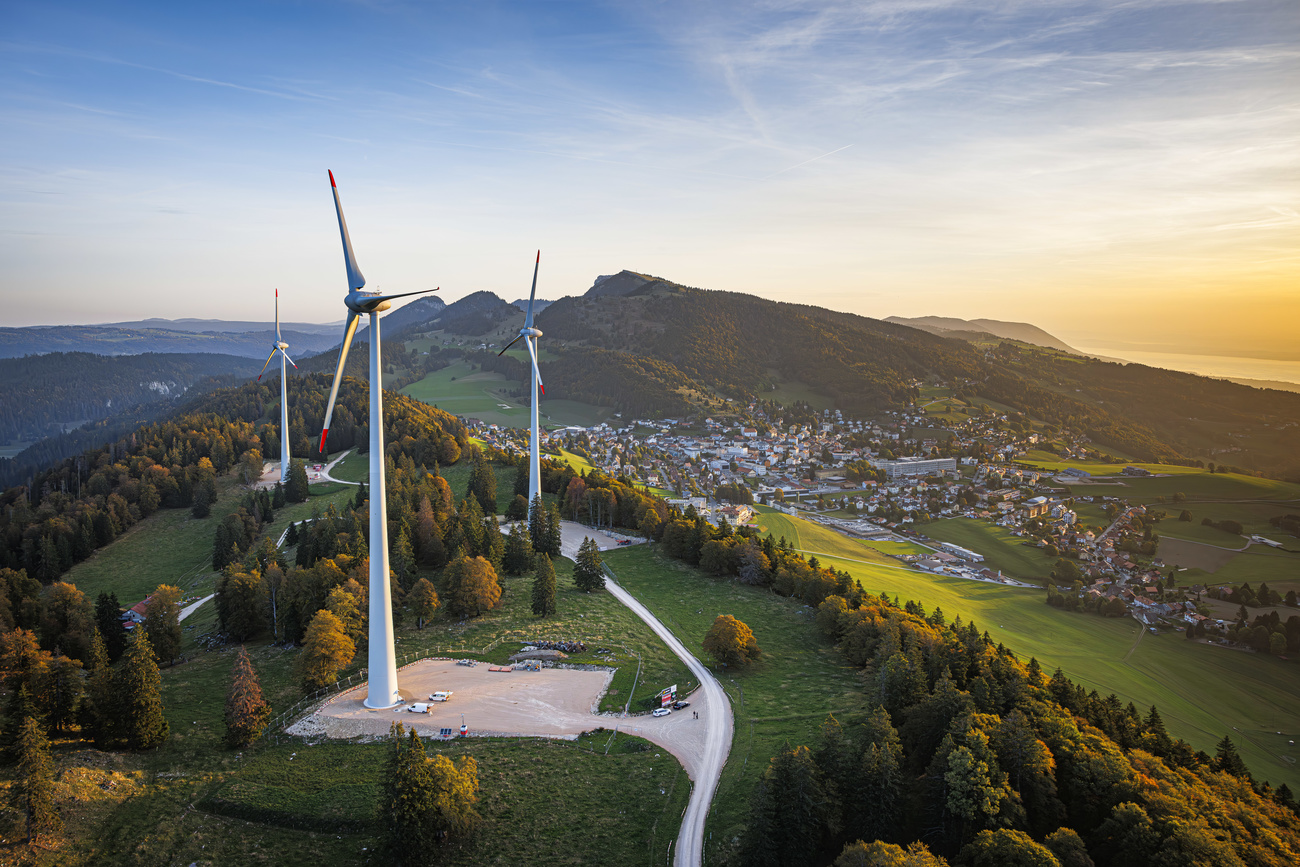
Switzerland trails other European nations in solar and wind power

Switzerland is at the bottom of the European league table when it comes to solar and wind-generated electricity, the Swiss Energy Foundation (SES) says.
The organisation said that despite Swiss progress on solar power last year, it was not enough to close the gap with other countries.
In 2023, Switzerland thus ranks 22nd in a European comparison, just ahead of Malta, Romania, the Czech Republic, Slovenia, Slovakia and Latvia, SES said in a statement on Thursday.
Every year, the organisation analyses the per capita production of solar and wind-generated electricity in Switzerland and the 27 European Union (EU) member states.
+ More: mountain solar parks in Switzerland spark debates
Top-ranked countries Denmark and Sweden produce six to seven times more solar and wind-generated electricity per capita than Switzerland. And when compared with the eight countries around it, Switzerland finds itself in the penultimate spot.
Just 9% of the electricity consumed in Switzerland is generated by solar panels and wind turbines in Switzerland. In Denmark, the figure is over 70%.
In wind power, the Netherlands is now in the European lead, producing more than twice as much solar energy per capita as Switzerland. Germany is also ahead of Switzerland in terms of solar electricity production.
On June 9, the Swiss electorate will vote on the so-called electricity law, which proposes binding targets and an investment-friendly framework to drive the development of renewable energies. The SES is campaigning in favour of a yes vote.
+ Read more: Switzerland needs energy, but what kind?
The legislation aims to improve the conditions for renewable energy installations by securing better financial investment and defining areas where large-scale solar and wind power plants can be built more easily.
Adapted from German by DeepL/kp
This news story has been written and carefully fact-checked by an external editorial team. At SWI swissinfo.ch we select the most relevant news for an international audience and use automatic translation tools such as DeepL to translate it into English. Providing you with automatically translated news gives us the time to write more in-depth articles.
If you want to know more about how we work, have a look here, and if you have feedback on this news story please write to english@swissinfo.ch.

In compliance with the JTI standards
More: SWI swissinfo.ch certified by the Journalism Trust Initiative





























You can find an overview of ongoing debates with our journalists here . Please join us!
If you want to start a conversation about a topic raised in this article or want to report factual errors, email us at english@swissinfo.ch.